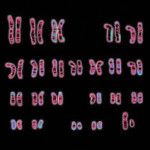Hi all. I haven’t written anything since New Year’s, and I guess it’s time to crank up the blog machine. I can see that we have a lot of new readers. I want to welcome you newcomers as well as ye olde and faithful — I hope there’s something here for you and I hope you’ll join in the dialogue with comments.
I just got an email from someone confused about the genetic roots of addiction. I get questions like this all the time. It’s a big issue that nobody’s very clear on. To be honest, I’ve been somewhat confused about the heritability of addiction too. One of the things I’ve found most confusing is that the heritability estimate keeps showing up in the 40 – 60% range, for drug addiction and alcoholism. How can it be that high, when most experts agree that the idea of an “addictive personality” is just plain wrong?
 Over the past month I’ve been reading an advance copy of Maia Szalavitz’s latest book, Unbroken Brain: A Revolutionary New Way of Understanding Addiction (St. Martin’s Press, upcoming). Maia is one of today’s brightest, most insightful commentators on addiction and related issues. She’s been writing articles for the popular press (e.g., The Fix) as well as scientific publications (e.g., Nature) for years. In her new book she explains addiction as a learned style of thinking, a coping style that isn’t working, or a developmental disorder — a rigid system of behaviours and beliefs cemented together over development. Her focus is mainly on trauma — hurtful, often devastating events impacting on the lives of children/adolescents and/or their families. Yet despite (or maybe because of) this emphasis on environmental forces, her explanation of genetic factors is as smart and as accurate as they come.
Over the past month I’ve been reading an advance copy of Maia Szalavitz’s latest book, Unbroken Brain: A Revolutionary New Way of Understanding Addiction (St. Martin’s Press, upcoming). Maia is one of today’s brightest, most insightful commentators on addiction and related issues. She’s been writing articles for the popular press (e.g., The Fix) as well as scientific publications (e.g., Nature) for years. In her new book she explains addiction as a learned style of thinking, a coping style that isn’t working, or a developmental disorder — a rigid system of behaviours and beliefs cemented together over development. Her focus is mainly on trauma — hurtful, often devastating events impacting on the lives of children/adolescents and/or their families. Yet despite (or maybe because of) this emphasis on environmental forces, her explanation of genetic factors is as smart and as accurate as they come.
The Big Three.
There are really just THREE things to keep in mind:
- Yes, heritability can be in the 50% range for many different addictions. That means that identical twins (with the same genetic makeup) share a strong inherited tendency to become addicted. Specifically, if one twin becomes addicted, there’s a 50% probability that the other one will too, and the commonality has to come from their parents’ DNA (and possible “epigenetic” influences too). The rest of that 100% is made up of environmental factors.
- This 50% figure is actually very typical of personality traits in general, such as the famous “Big Five” traits, like sociability or extroversion.
- And yet the 50% figure for a genetic influence on addiction does NOT come from any single trait. There is no such thing as an addiction trait or addictive personality!!!
So how do we explain that 50%?!
 Let’s say you and your brothers have big noses, or bad teeth, or muddy coloured eyes… And let’s say that this tendency comes from your shared DNA — which would not be surprising if it’s a trait you all share. Because you all carry the “big nose” gene, your chances of getting hot dates in college are diminished. You each have a strike against you.
Let’s say you and your brothers have big noses, or bad teeth, or muddy coloured eyes… And let’s say that this tendency comes from your shared DNA — which would not be surprising if it’s a trait you all share. Because you all carry the “big nose” gene, your chances of getting hot dates in college are diminished. You each have a strike against you.
Now let’s say that another set of brothers (or sisters) is congenitally shy, or has poor colour vision and thus poor taste in clothes. These are other genetic factors that might increase the risk of sitting home alone on Saturday night.
 So we’ve got at least two radically different genetically-loaded traits that predict the same outcome. If we were doing a study on genetic factors that contribute to a diminished social life, both traits would show up as predictive. And if each one correlated 50% with its appearance in a twin brother, then it wouldn’t matter that we pool them together in our study, because genetic studies always pool individual traits and add up how much of any outcome is shared by family members (specifically, family members living apart, since that’s the only way to isolate the contribution of genetics).
So we’ve got at least two radically different genetically-loaded traits that predict the same outcome. If we were doing a study on genetic factors that contribute to a diminished social life, both traits would show up as predictive. And if each one correlated 50% with its appearance in a twin brother, then it wouldn’t matter that we pool them together in our study, because genetic studies always pool individual traits and add up how much of any outcome is shared by family members (specifically, family members living apart, since that’s the only way to isolate the contribution of genetics).
 The last thing to note is that, if you were unfortunate enough to carry the colour-blindness gene and the big nose gene, then you and your sibs would have an even higher chance of a disappointing sex life, unless these traits happened to work together in a particularly charming combination (Leonard Cohen?) And even though that’s very possible, it wouldn’t matter much. Genetics is sort of a dumb science and all it cares about are averages.
The last thing to note is that, if you were unfortunate enough to carry the colour-blindness gene and the big nose gene, then you and your sibs would have an even higher chance of a disappointing sex life, unless these traits happened to work together in a particularly charming combination (Leonard Cohen?) And even though that’s very possible, it wouldn’t matter much. Genetics is sort of a dumb science and all it cares about are averages.
So what traits predict addiction?
Several. The strongest predictors are (1) an impulsive or antisocial personality style, and (2) an anxious, overly-sensitive, perhaps OCD personality style. Note that these personality clusters are almost perfect opposites: the brash, uncaring person vs. the anxious, neurotic person. In fact, they may be based on opposite extremes of  certain ingredients in the chemical recipe of personality: too much dopamine or too little serotonin for the anxious kid; too little dopamine or too much serotonin for the impulsive thrill-seeker (who needs to try harder to feel excited). Yet both these traits
certain ingredients in the chemical recipe of personality: too much dopamine or too little serotonin for the anxious kid; too little dopamine or too much serotonin for the impulsive thrill-seeker (who needs to try harder to feel excited). Yet both these traits  increase your odds of becoming an addict, and both are (partly) heritable. Which is to say they are shared between parents and children and between siblings (who carry much of the same DNA).
increase your odds of becoming an addict, and both are (partly) heritable. Which is to say they are shared between parents and children and between siblings (who carry much of the same DNA).
According to Maia Szalavitz in her new book, there’s a third heritable package that strongly predicts addiction: a combination of reckless drive on the one hand and sensitivity to failure or loss on the other. Maia says that this disposition was her royal road to addiction, and I believe it was mine too. And by “royal road” I don’t mean a direct cause but a causal contributor — one variable among many. Like me, Maia is a developmental thinker, and she sees these genetic predictors as early conditions that can lead down many different roads, depending on environmental  circumstances.
circumstances.
Next post I’m going to go into a lot more detail on how these very different personality styles can make one more vulnerable to addiction, and how other personality (and environmental!) factors can make one more resilient. And I’m going to remind you that these factors can interact with each other in all kinds of interesting ways.

Leave a Reply